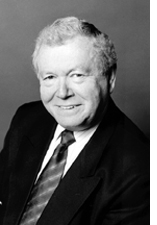By Rabbi Dow Marmur
 JERUSALEM –The only reason that takes me to the shrine of the Western Wall is the company of tourists and the occasional Bar/Bat Mitzvah. Unlike some Jews who profess piety, the place doesn’t move me to prayer. In fact, the ostensibly religious hustlers who exploit it for blatantly irreligious, even discriminatory, reasons fill me with contempt.
JERUSALEM –The only reason that takes me to the shrine of the Western Wall is the company of tourists and the occasional Bar/Bat Mitzvah. Unlike some Jews who profess piety, the place doesn’t move me to prayer. In fact, the ostensibly religious hustlers who exploit it for blatantly irreligious, even discriminatory, reasons fill me with contempt.
But I made an exception last Thursday evening because my grandson was being sworn in at a ceremony there. Like almost all Israeli young men he has been conscripted to serve for three years. (His older sister has just done two years, the norm for women.) That night he pledged his allegiance to his country and received a gun and a Bible.
On one level, the ceremony was corny. It consisted of several patriotic speeches with many references to Scripture, especially to Joshua’s conquest of the land. The very fact of holding the event at the Wall is problematic in that it gives the impression of turning military necessity into a religious imperative. Had I chosen the texts, they’d come from the Prophets urging us to divine service and national self-scrutiny.
But the speakers did make some reference to the pursuit of peace and to what Israelis call “the purity of arms.” Despite the military drill, the recruits weren’t being primed to become indiscriminate killers but, rather, thoughtful and proud defenders of their people. This was no nationalist rally, but a somber moment.
Though mercifully there were no usual references to the Holocaust, Fredzia and I couldn’t help but think of it. As children we witnessed the Sho’a, she as a survivor of a Nazi concentration camp, I at a somewhat safer distance in various parts of the Soviet Union. We well remember what it was like when Jews weren’t able to defend themselves.
As critical as I am of many aspects of the politics of the current government of Israel, I also know that had there been no Jewish state, our people might by now be on its way to become quaint exhibits in museums. We’re mindful that the Netanyahu government may have been elected foolishly, but it was done freely and democratically.
That’s why to have grandchildren who’re there to be part of the challenge of Jewish sovereignty fills me with pride and gratitude. Their parents have imbued them with a sense of love for the country and taught them their duty to treat all human beings, including adversaries, as God’s creatures. As critical defenders of democracy they’re loyal Israelis who espouse at times unpopular causes for peace, justice and coexistence.
It’s a balance difficult to keep: often we don’t get it right. We tend to veer either to too much particularism with insufficient regard for others or to too much universalism without due commitment to our own. For some even that is too hard and they blindly tow party lines that deliberately distort the opposite point of view. As exciting as it is to live in Israel, it’s very easy to get the country wrong from whatever angle you try to assess the situation in an effort to help map its future and to determine your own role as a citizen.
Most of the civilians present at the ceremony were parents and relatives. Tourists from abroad who might have found themselves there at the time might be forgiven for being repulsed by the seeming militarism. But if they know at least something about Jews and their history they might reflect on the alternatives and ask themselves if they would have accepted the threat of their own extinction just for the sake of being considered by the rest of the world as good guys and noble victims.
*
Rabbi Marmur is spiritual leader emeritus of Holy Blossom Temple in Toronto. He now divides his time between Canada and Israel